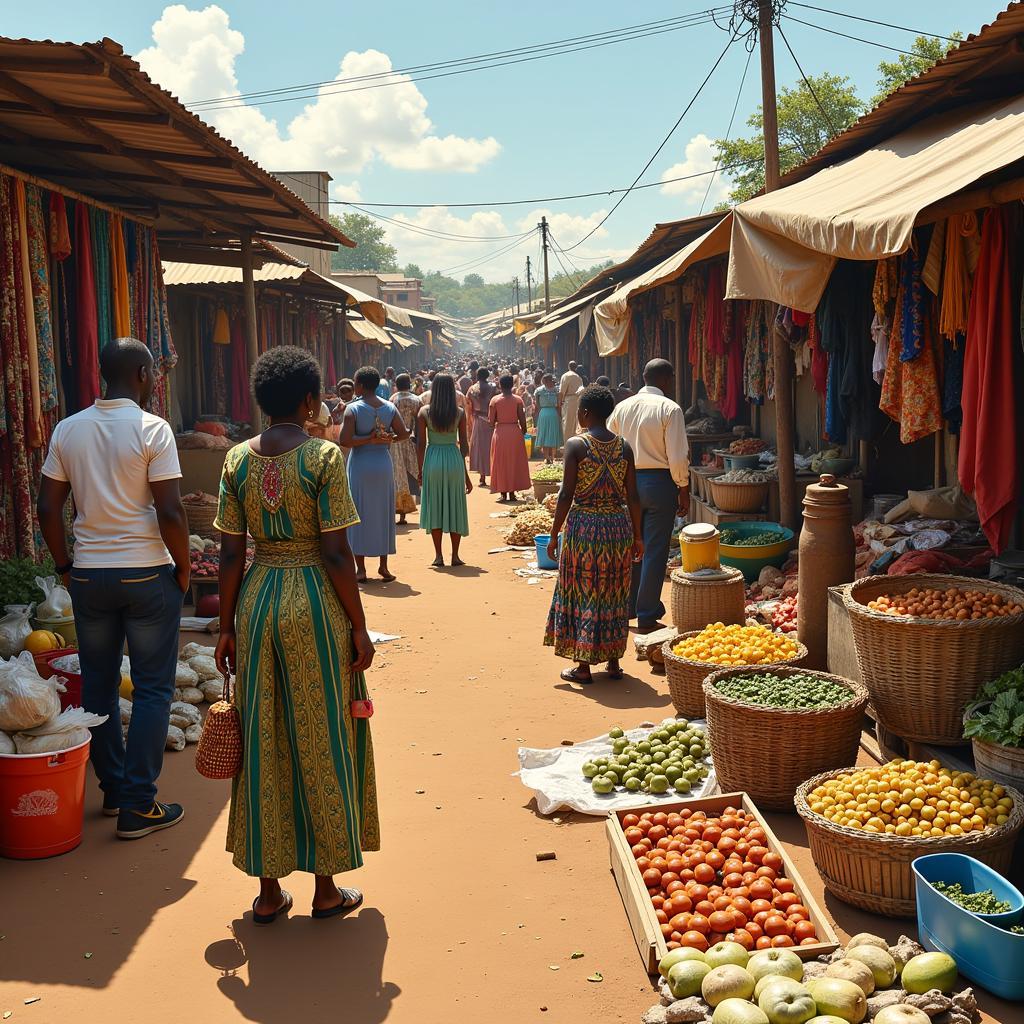African First Nobel Laureate: Wole Soyinka and the Legacy of Literary Excellence
The African continent boasts a rich tapestry of cultural achievements, and within this vibrant landscape, literature shines brightly. The question, “Who was the African First Nobel Laureate?” leads us to a name synonymous with literary genius: Wole Soyinka.
A Literary Luminary is Born
Born in 1934 in Abeokuta, Nigeria, Wole Soyinka’s journey began amidst the currents of change sweeping through colonial Nigeria. His early education exposed him to both Western and traditional Yoruba influences, a duality that would profoundly shape his writing. He went on to study at University College Ibadan and the University of Leeds in England, further honing his craft and developing a distinct literary voice.
A Voice Against Injustice
Soyinka’s works, encompassing plays, novels, poetry, and essays, are characterized by their profound exploration of themes such as colonialism, corruption, and the struggle for freedom and justice. His writing is often infused with satire, wit, and a deep understanding of Yoruba mythology and symbolism. Plays like “A Dance of the Forests” and “The Lion and the Jewel” established him as a leading figure in African drama, while his novel “The Interpreters” offered a scathing critique of post-colonial Nigerian society.
The Nobel Prize: A Defining Moment
In 1986, Wole Soyinka etched his name in history by becoming the first African Nobel Laureate in Literature. The Swedish Academy recognized his “wide cultural perspective” and “poetic tone” that “drums out the drama of existence.” This prestigious accolade not only celebrated Soyinka’s individual brilliance but also shone a global spotlight on the richness and depth of African literature.
A Legacy of Inspiration
Soyinka’s influence extends far beyond his literary achievements. A staunch advocate for human rights and social justice, he has consistently used his platform to speak out against tyranny and oppression, both in Africa and worldwide. His unwavering commitment to freedom led to his imprisonment by the Nigerian government during the civil war, an experience reflected in his powerful prison memoir, “The Man Dies.”
Do you know other notable African heroes? You can find out more about them by visiting our page on african hero names.
The Enduring Power of Words
Wole Soyinka’s literary legacy continues to inspire generations of writers and readers alike. His work serves as a testament to the power of language to challenge, to provoke, and to illuminate the complexities of the human experience.
Conclusion
The answer to “Who was the African first Nobel laureate?” is more than just a historical fact; it is an invitation to explore the vast and compelling world of African literature. Wole Soyinka’s remarkable journey, marked by literary excellence and unwavering activism, serves as a beacon, reminding us of the power of words to inspire change and illuminate the shared human experience. If you’re curious about other remarkable individuals who have shaped the African continent, take a look at our compilation of famous south africans.
FAQ
1. What are some of Wole Soyinka’s most famous works?
Some of his most celebrated works include the plays “Death and the King’s Horseman,” “The Lion and the Jewel,” and “A Dance of the Forests,” the novel “The Interpreters,” and his prison memoir, “The Man Dies.”
2. What themes are explored in Wole Soyinka’s writing?
Soyinka’s works grapple with themes of colonialism, corruption, power, identity, tradition versus modernity, and the struggle for freedom and justice.
3. Why is Wole Soyinka considered a significant figure in African literature?
Soyinka is considered a pivotal figure for his pioneering role in modern African drama, his eloquent exploration of complex social and political issues, and his use of Yoruba mythology and language to enrich his writing.
4. What is Wole Soyinka’s writing style like?
His writing is often characterized by its lyrical prose, satirical wit, complex characters, and the seamless blending of realism and symbolism.
5. What is the significance of Wole Soyinka winning the Nobel Prize in Literature?
His win marked a watershed moment, bringing international recognition to African literature and highlighting its richness, diversity, and global significance.
Need further assistance? Please contact us:
- Phone: +255768904061
- Email: kaka.mag@gmail.com
- Address: Mbarali DC Mawindi, Kangaga, Tanzania.
Our customer support team is available 24/7 to answer your inquiries. For further exploration of African heroes and their impact, check out our page on african heroes in history. We also invite you to learn more about the incredible achievements of the african first woman nobel laureate with date to delve deeper into the continent’s rich history of Nobel Prize winners. Finally, if you’d like to explore a specific aspect of African-American history related to the Nobel Peace Prize, our page on african american nobel peace prize winners offers valuable insights.

